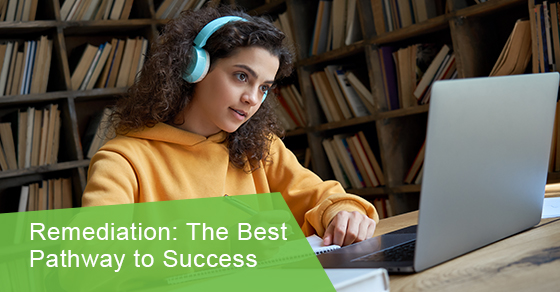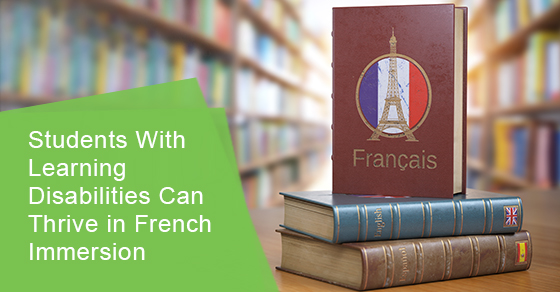Academic Remediation vs. Accommodations: Which Approach Works Best?
Students diagnosed with ADHD, ASD, and/or learning disabilities frequently benefit from remediation strategies and accommodations that help them thrive in school and everyday life. While both approaches are important, it is more common for students to receive accommodations—such as extra time on tests, assistive technology, or notetaking services—than to have their deficits in reading, writing, and math addressed through personalized instruction and intervention. Research shows, however, that while accommodations offer a successful short-term solution, evidence-based remediation tactics and long-term intervention strategies provide lasting effects that help students become independent learners.
How Are Tutoring and Remediation Different?
Tutoring focuses primarily on current academic content to ensure the student understands the concepts and material relevant to their grade level. Tutoring involves the student’s day-to-day schoolwork and may include focusing on “catch-up” opportunities if they have missed information because of illness or remote-learning challenges. The tutor explains the material in more detail or by re-teaching it to the student. The focus of tutoring is primarily content-oriented.
In contrast, remediation is used to identify and close gaps in subject knowledge from previous academic years. Progress in subjects such as reading and math is built on a solid understanding and mastery of earlier concepts. Remediation is helpful for students who have demonstrated persistent difficulty with a specific academic skill, those who have struggled significantly with online learning, and for students whose performance is significantly below grade level. This approach is a more intensive intervention and requires more time on task.
Why Is Remediation So Important?
In the Right to Read inquiry report on human rights issues affecting students with reading disabilities, released by the Ontario Human Rights Commission earlier this year, findings established that accommodations and curriculum modifications are not a substitute for teaching students to read.
“The primary purpose of accommodations is to provide students with supports so they can access the curriculum across subjects and show what they have learned. Accommodation must be provided along with, and never in place of, evidence-based curriculum and interventions,” said the report.
“The goal of evidence-based reading instruction, interventions, and accommodations is always to make sure a student is working at grade level. However, in rare cases, it may be necessary to modify grade-level expectations for a subject or course to meet the student’s learning needs. This may involve developing expectations that reflect the knowledge and skill for a different, typically lower, grade level in the curriculum or reducing the number of grade-level expectations. Accommodations help students meet curriculum outcomes; modifications change curriculum outcomes.
“Modification to lower grade-level expectations must be used very cautiously, and only as a last resort after all possible interventions and accommodations have been tried. Modification has long-term consequences for the student. They may never catch up with their peers who are working at grade level and may be streamed into applied and locally developed high school courses as a result, limiting their future education opportunities.”
In other words, lowering the bar and providing students with assistance may help them meet curriculum and testing demands in the near term, but such supports do nothing to enable them to master the material and build on that success.
In a recent study of accommodation practices published in the Canadian Journal of School Psychology, researchers concluded that “educational accommodations which alter the manner in which instruction or assessments are administered, are often an appropriate part of a student’s academic program. However, accommodations are frequently overused and have significant limitations” (Lovett & Harrison, 2021).
The Landmark School in Massachusetts, dedicated to educating students in Grades 2–12 diagnosed with dyslexia or other language-based learning disabilities, defines the differences in this way:
Accommodations allow a student to complete the same assignment or test as other students, but with a change in the timing, formatting, setting, scheduling, response and/or presentation. In other words, accommodations are intended to help kids learn the same material and meet the same expectations as their classmates.
With remediation, the student is taught strategies through a structured, sequential, multisensory approach that enables them to acquire academic skills in reading, spelling, and oral and written language.
To use a common metaphor, giving a student a life preserver is not as effective as teaching them to swim.
Remediation at Evoke
At Evoke, we offer several math, writing, and reading programs designed to assist students in remediating gaps and deficits in academic skills. Contact us to learn more about how we can provide your student with a solid foundation to prepare for new learning.



